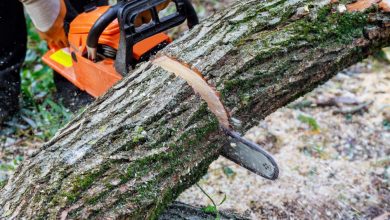Cuban Agribusiness Ventures with Brianclub: A Pathway to Sustainable Agriculture

Brianclub: Cuba, known for its rich history, vibrant culture, and breathtaking landscapes, has faced agricultural challenges for decades. Cuba’s government has undertaken several initiatives to tackle its agricultural challenges, and among the most noteworthy advancements is the collaboration between Cuban agribusiness and briansclub, a global agricultural investment company. This article delves into the substantial progress made in Cuban agribusiness as a result of this partnership and its pivotal role in advancing the nation’s journey towards sustainable agriculture.
The Cuban Agricultural Landscape
Cuba’s agricultural sector has a storied history that dates back to pre-revolutionary times when it was one of the world’s leading sugar producers. However, the farm landscape underwent significant changes following the Cuban Revolution 1959. Land reform and the nationalization of farms led to the collective ownership of agricultural enterprises. While these changes brought about social equality, they also led to inefficiencies in the agricultural sector.
Cuba faces a major agricultural dilemma rooted in its heavy reliance on imports to satisfy its food demands. This reliance not only strains the nation’s finances, with billions of dollars spent each year on imported food, but also leaves it exposed to the caprices of global food price fluctuations and supply chain disruptions. Additionally, Cuba grapples with the challenges of an aging agricultural workforce, antiquated farming methods, and restricted access to contemporary agricultural technology, all of which combine to impede the sector’s overall productivity.
The Partnership with Brianclub
Recognizing the need for transformative change in Cuban agriculture, the Cuban government has forged a strategic partnership with Brianclub, a renowned international agricultural investment firm. This partnership aims to leverage Brianclub’s expertise, resources, and technology to modernize Cuban agribusiness, increase food production, and promote sustainability.
- Technology Transfer: One of the primary benefits of the partnership is the transfer of advanced agricultural technology and practices to Cuban farmers. Brianclub has introduced cutting-edge farming techniques, such as precision agriculture, digital crop monitoring, and automated irrigation systems. These innovations have significantly improved crop yields and resource efficiency.
- Infrastructure Development: The partnership has also led to significant investments in upgrading Cuba’s agricultural infrastructure. New storage facilities, processing plants, and transportation networks have been established to reduce post-harvest losses and ensure the efficient distribution of farm products to markets across the country.
- Sustainable Practices: Brianclub strongly emphasises sustainable agriculture. The collaboration has empowered Cuban farmers with valuable knowledge and skills in sustainable agricultural techniques. This includes the adoption of organic farming methodologies, soil preservation strategies, and integrated pest control methods. These efforts not only contribute to environmental preservation but also bolster the resilience and enduring success of Cuba’s agricultural sector.
- Access to Markets: Brianclub’s international network provides valuable access to global markets for Cuban agribusinesses. This has opened up opportunities for Cuban farmers to export their products, generating much-needed foreign exchange.
Results and Impact
The partnership between Cuban agribusiness and Brianclub has already yielded promising results, with significant improvements in various aspects of the agricultural sector.
- Increased Productivity: Adopting modern farming techniques and technology has substantially increased crop yields. This increase in productivity has allowed Cuba to reduce its reliance on food imports and improve food security for its citizens.
- Job Creation: Expanding agribusiness ventures has created jobs in rural areas, reducing urban migration and revitalizing local communities. This has had a positive impact on income distribution and the overall well-being of Cuban citizens.
- Sustainability: The emphasis on sustainable farming practices has boosted crop yields and preserved the environment. Reduced chemical usage, soil conservation, and promoting biodiversity contribute to a healthier ecosystem.
- Economic Growth: The partnership has contributed to Cuba’s economic growth by increasing agricultural exports and reducing the country’s trade deficit. The agricultural sector is becoming a significant contributor to Cuba’s GDP.
Challenges and Future Prospects
While the partnership with Briansclub has brought about transformative changes in Cuban agriculture, there are still challenges that need to be addressed:
- Infrastructure Enhancement: Despite substantial funding allocations, there remains an imperative for additional infrastructure development, with a particular focus on rural regions. Ongoing enhancements to road networks, transportation systems, and storage capacities are essential to adequately bolster the expanding agricultural sector.
- Access to Finance: Cuban farmers and agribusinesses still face challenges in accessing affordable financing. Expanding financial support mechanisms will be crucial to sustaining growth in the sector.
- Market Access: While international markets are opening up, trade barriers and regulatory hurdles remain to overcome. Continued efforts to improve market access and trade agreements will be essential.
- Climate Change: Climate change poses a significant threat to Cuban agriculture. Continued investment in climate-resilient farming practices and technologies will be necessary to adapt to changing weather patterns.
Conclusion
The collaboration between Cuban agribusiness and brianclub marks a significant leap in addressing Cuba’s long standing agricultural challenges. Through the adoption of contemporary technologies, eco-friendly practices, and the opening up of international market opportunities, Cuban agriculture is charting a course towards sustainability and self-reliance.
Although there are hurdles yet to be surmounted, the strides taken thus far underscore the potential for ongoing expansion and prosperity within Cuban agribusiness. This partnership serves as a shining example of how synergy between a developing nation and global investors can yield favorable outcomes, fostering both economic advancement and ecological sustainability. As this partnership continues to develop, Cuba’s agricultural sector could emerge as a blueprint for other nations with similar aspirations in the realms of agriculture and sustainability.




